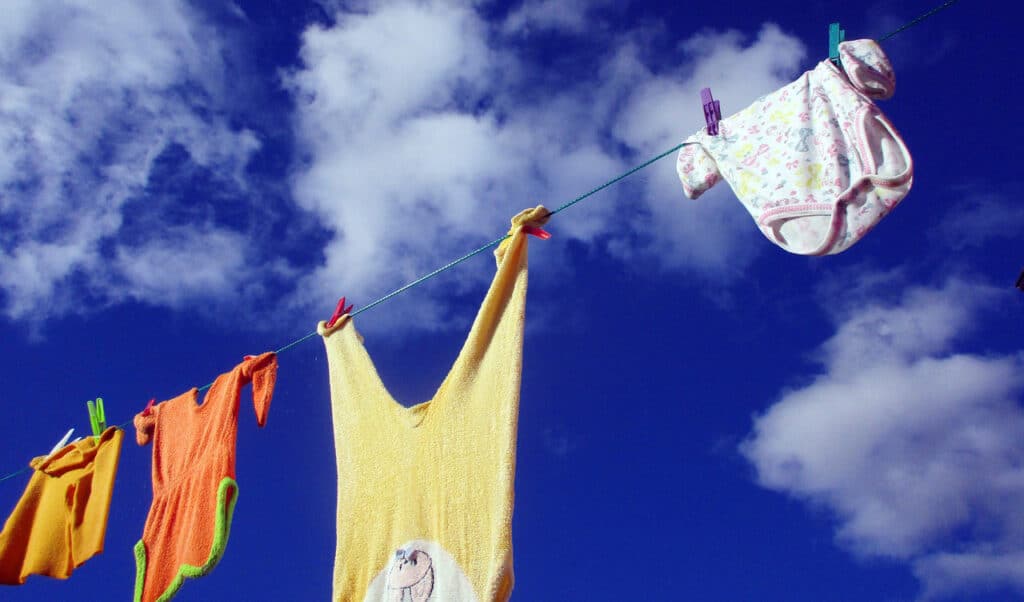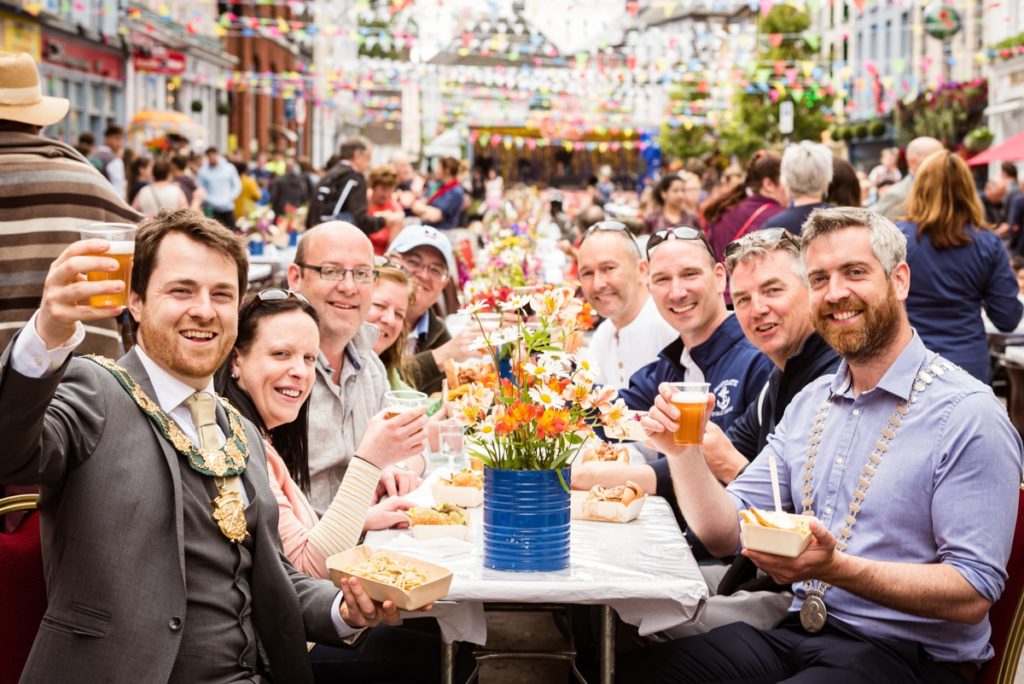PERMANENT CULTURE
Principal #5: Use and Value Renewable Resources
Allison Roberts looks at the permaculture principal ‘Use and Value Renewable Resources and explains how from simply line-drying our laundry to using renewable energy to power our homes and businesses, we can all seek out more natural, less-resource intense solutions to satisfy our needs and solve our problems

Summer is here. It’s amazing how quickly we forget the rain and the early nights! This is a year like no other, and a great time to have a look at what the Permaculture principals can offer us. With it’s founding principals of ‘Earth-care, people-care, fair share’ the fifth principal ‘Use and Value Renewable Resources and Services’ highlights the importance of creating systems that work with nature, and requires us to seek out more natural, less-resource intense solutions to satisfy our needs and solve our problems.
With all this sunshine, simply line-drying our laundry is a perfect example of using renewables to get the job done. Rainwater collection, solar water/pv systems, growing veg – thus converting all that solar energy into food, and eating in season, are some obvious ways to demonstrate this principal. When we look at the ‘Cool Clon’ project something as simple as creating more infrastructure to encourage and support easier pedestrian and cycle movement around town would be a good place to start. In Clonakilty we have five schools that would have been an easy walk for students in the years before the heavily-resource-reliant automobile took centre stage. What would happen if we create the support kids need to cycle or walk to school safely, giving them the room they need away from traffic? I must bring the beautiful bicycle to the forefront – surely one of man’s most resource-friendly inventions and with the Clonakilty Bicycle Festival starting June 3, a great time to celebrate it Permaculture-style. Included this year is a ‘Cycle-bus’ forum, an online panel with national experts discussing how to organise and mobilise a network of parents and volunteers taking turns getting kids to school on bikes safely – if you are in Skibbereen or Clonakilty and want to get involved look up the festival schedule or get in touch with me directly, the event is Saturday, June 6 but we would love to hear from any parents interested. The bicycle makes great use of a renewable resource – our food supply and so our own energy – by being the most energy efficient mode of transport on the planet – much more efficient than walking and definitely more efficient than any car. In fact taking your bike can be up to five times more efficient than walking– and whereas 100 calories can power a cyclist for 5km, the same energy would only power a car 280 feet!
This year, being the ninth Clonakilty Bicycle Festival, and with the year that is in it, the organisers have kept the festival on the ‘road’ planning the biggest festival yet, making all events ‘socially distanced’ with global participation. From fun cycle competitions in small groups to online forums and a global scavenger hunt the festival is making use of the new technologies we can all grab a hold of. One ‘bonus’ event will be the creation of a ‘Clonakilty 10,000 trees cycle’, mapping where our trees have been planted with accompanying GPS and podcast. Trees are of course a perfect example of this prinicipal, cleaning our air better than any non-renewable filter system, giving us shade from the heat, food, fuel and mental health benefits they are a renewable resource to be used and valued.
Central to this principal is the need to use renewable energy to power our homes and businesses. In West Cork solar, wind and wave energy are all at our doorstep but 45 per cent of our power is still powered by non-renewable natural gas as well as a good proportion of coal. With great plans developed by Sustainable Clonakilty, all the base information needed to move forward with renewable energy here in West Cork has been mapped out – we just need those in positions of power to really give it the attention it deserves. In the meantime we can simply start observing (first principal) our behaviours and looking for renewable alternatives to get jobs done, from doing away with non-renewable cling-film and aluminium foil, or reusing packaging to ship parcels – something I do in my own business, customers ‘opt-in’ for a €1 discount on their order, letting them be the champions of their own waste habits. Let’s put old habits aside and embrace all the beautiful renewable solutions available – from bamboo keep-cups to stainless steel lunch boxes to making your own back yard compost, there are a million small steps we can take on this journey – the most important thing is to keep moving!
Next month we’ll go deeper with Permaculture principal 6 – produce no waste! Can you think of any examples on how we could implement some of these permaculture principals in our town? Get in touch!



